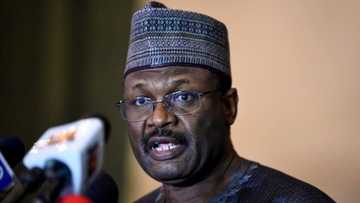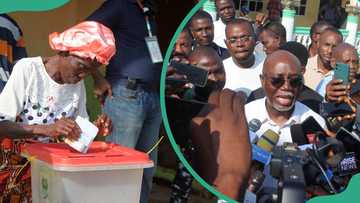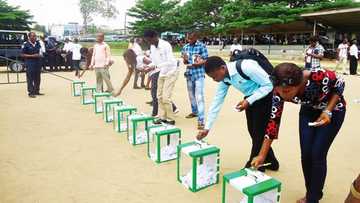What are the factors that lead to political apathy in Nigeria?
Politics determines how the people in power govern a country. Therefore, every citizen’s right and responsibility to participate in political processes determine who or what party captures powers in a country. Even though participating in politics is essential, some citizens have lost interest in their country’s politics.
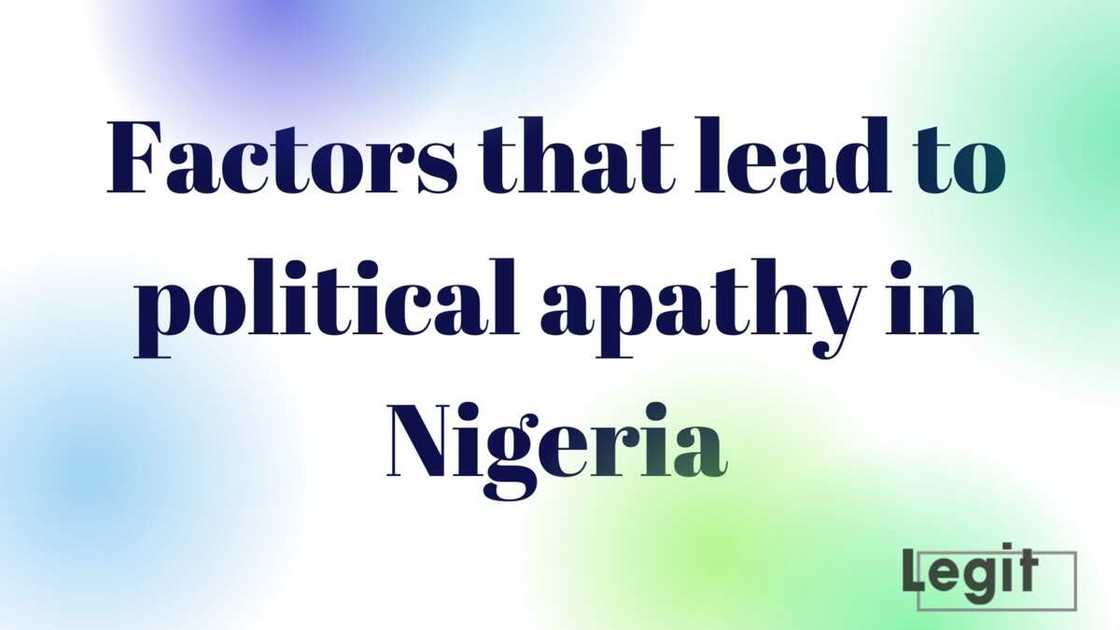
Source: Original
Nigeria is one of the many countries in Africa that has significantly suffered the consequences of political apathy. What are some of the reasons for political apathy in Nigeria? Read on to learn more details.
What is the meaning of political apathy?
It is the electorate’s disinterest in civic activities, including voting, civic awareness, and civic responsibility. In a country where there is high political apathy, citizens are indifferent in their attitude to the civic activities of the country.
Is apathy different from abstention? While political apathy alludes to a citizen’s disinterest in politics, abstention means that a citizen is concerned with political affairs but chooses not to participate in an activity such as voting.

Read also
Fallout of party primaries: Akin Fadeyi foundation kicks off women can do governance inclusive competition
What are types of political apathy?
Political apathy exists in various forms, and generally, it negatively affects citizens’ willingness to participate in civic processes. Here are forms of political apathy in Nigeria.
Voter apathy
This occurs when voters do not have confidence in a country’s electoral system and feel that their votes will not count in an election. Citizens think that election malpractices are prevalent and do not vote in an election.
Information apathy
This happens when citizens are not aware of government activities despite available information. They are out of touch with government initiatives and programs that might significantly impact their lives.
Interest apathy
It is when citizens are not interested in their country's politics. Such citizens do not bother about politics and how it affects their daily lives. They are not concerned with governance, resource distribution, and leadership.
What are the causes of political apathy in Nigeria?
Political apathy in Nigeria can be attributed to many reasons ranging from distrust in the political system to high poverty levels. Here is an outline of some of the causes of political apathy.
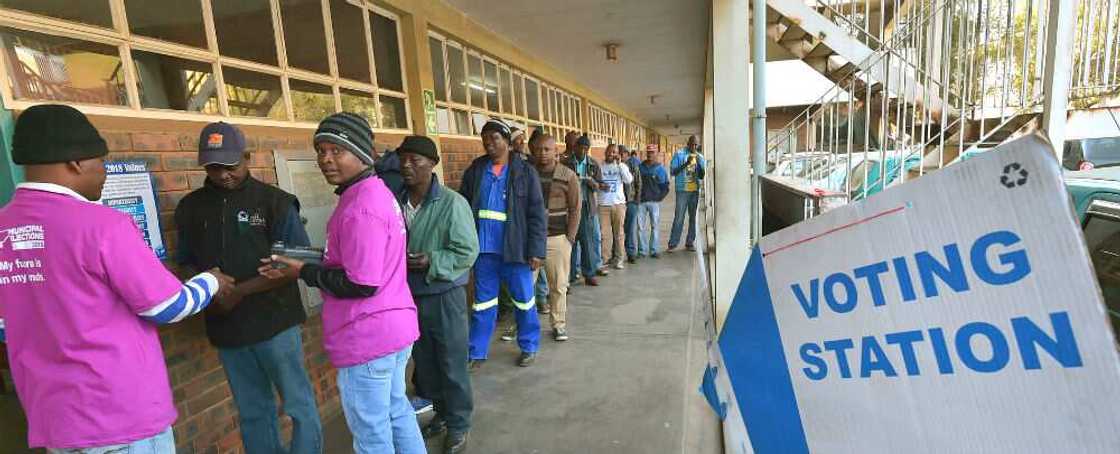
Source: Twitter
- Distrust – After a series of bad leadership and governance, citizens might start to believe that the government does not care about their needs. Therefore, they would see no need to participate in civic activities that would form such governments. Most leaders do not fulfil their promises when they get into office.
- Electoral malpractices – In a democratic country, every person’s vote should count. However, that is not the case in a country with electoral malpractices and manipulations. If citizens do not have faith in the electoral system, then a majority of them would be less concerned with the country's affairs.
- Rampant corruption – Bad governance is primarily attributed to corruption which bedevils many countries. Widespread corruption by leaders discourages people from participating in political processes as they tend to believe that their input does not matter in changing the country’s governance.
- Lack of variety – When there are only a few contestants in an election, the masses have limited options of leaders to choose and some people will not see the need to cast their votes. However, many people vying for a position will want to vote to ensure their preferred candidate wins.
- Lack of awareness – There is likely to be high political apathy in high illiteracy countries since many people are unaware of the civic processes. They do not lack interest but are not aware of their rights and responsibilities in shaping their country’s destiny.
- Lack of communication – A disconnect between leaders in government and citizens can make citizens feel that they are left out of government activities. Communication enhances transparency, and thus, the masses will be aware of government affairs and have an interest in them.
- Coercion – In a dictatorship country, the voices of the people are silenced by authoritarian leaders who believe that they have the final say on every matter. The dictators disregard the justice system and impose government policies without soliciting citizens' opinions.
- The negative perception created by media – The media plays a vital role in covering a country’s affairs. It influences the perception of many citizens who rely on it for information. Distorted information, biased panellists and partial coverage can make many citizens give up in participating in democratic processes.
What are the consequences of political apathy in Nigeria?
Political apathy is not without its fair share of adverse effects. Here are some of the effects of political apathy in Nigeria.

Source: Twitter
- Elections do not represent people’s will – When only a few people vote in an election, the results are not representative of everyone’s will. As a result, whoever wins the election does not have the backing of a majority of people.
- A barrier to good governance and decision making – A leader elected with a minority vote will be hesitant to organize good governance and development meetings since they do not enjoy popularity in the region. Therefore, citizens will lack the opportunity to make development decisions that affect them.
- A hindrance to community and national development – Politicians love being popular in the regions they lead, and if a majority of people did not elect them, they would tend to shift more focus on gaining popularity than developing the region.
- No democracy – The essence of democracy is defeated in a region where a few people vote. The majority of people do not have their say.
- Lack of accountability – Leaders should be accountable for their actions when in office. Accountability is only possible when they are questioned about their actions, but when the masses are less concerned with the happenings, a leader will not account for his actions.
What are ways of reducing political apathy in Nigeria?
Even though political apathy has far-reaching effects, there are ways of mitigating it so that citizens are concerned with the affairs of their country. Below are some solutions.

Source: Twitter
- Learn about politicians and policies – Information is essential in making a choice. You should research politicians to know who they are and what they stand for. Then, compare and contract different parties' policies to make an informed choice at the ballot.
- Know that you have a solution to the country’s problems – Avoid blame games and take responsibility for the country’s problems. Some leaders might not have solutions to problems bedevilling the country, but you can stand up to initiate the change needed.
- Identify important matters - What are your interests? By knowing what matters to you, you will participate in an election to vote for the leader who will take care of your interest.
- Champion electoral reforms – If you think that your vote will not count, initiate electoral reforms to ensure that your vote counts. Advocate for a credible and transparent electoral system so that you have confidence in it as you cast your vote.
- Take part in political processes – Political apathy is likely to continue if you do not participate in civic processes. Your attitude towards politics influences other people, and thus, they are likely to follow suit.
In a democratic country like Nigeria, political apathy can erode the country's gains over time. However, this problem has solutions that can restore citizens’ political efficacy.
READ ALSO: 2023: Nigerian Youths Forum Endorses Tambuwal As Next President
Legit.ng recently published an article about Tambuwal's presidential bid in Nigeria. The governor got a boost for his presidential ambitions after being endorsed by the Nigerian Youths Forum.
After long hours of a consultative meeting in Abuja, the youth groups came to a consensus that will unanimously support Aminu Waziri Tambuwal in the 2023 election. Have a look at the article for more information.
Source: Legit.ng


